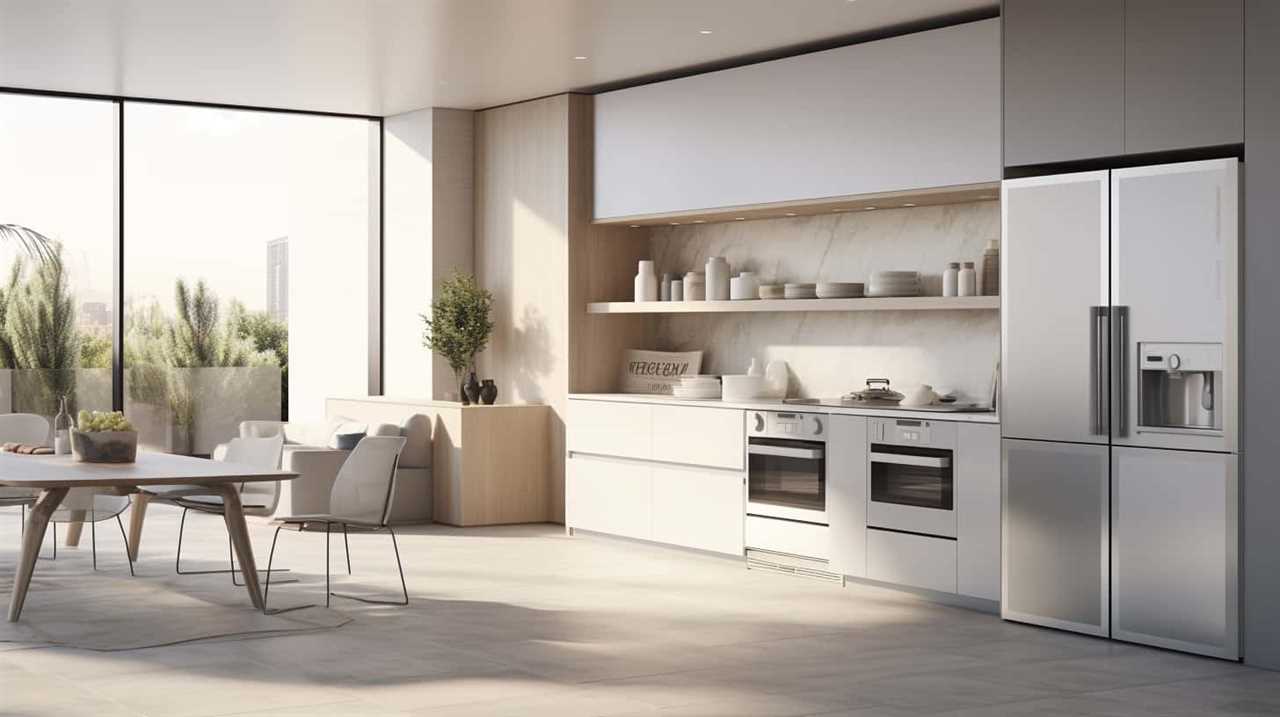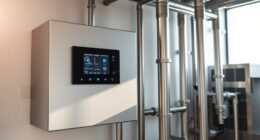When it comes to electrical appliances, it is important to understand voltage compatibility in order to ensure they work properly and safely. A common question that often comes up is whether appliances that run on 240v can be used with a 110v power source. This question is especially important for travelers who may encounter varying voltage standards in different parts of the world.
In this comprehensive guide, we will delve into the factors that determine appliance compatibility, explore the possibility of voltage conversion, and emphasize the importance of voltage transformers. Additionally, we will provide insights into checking appliance specifications and offer tips for travelers with 240v appliances.
By the end, readers will be equipped with the knowledge needed to make informed decisions regarding the usage of 240v appliances on 110v power sources.
Key Takeaways
- Voltage compatibility is crucial to prevent damage or malfunction of appliances.
- Voltage conversion alternatives, such as using a step-up transformer, can allow safe operation of 240v appliances on a 110v power supply.
- Checking appliance specifications is essential to ensure compatibility before use.
- Voltage transformers provide a reliable solution for different voltage requirements and ensure the safe and efficient operation of 240v appliances on a 110v electrical system.
Understanding Voltage Compatibility
The understanding of voltage compatibility is crucial when determining whether 240v appliances can run on 110v. Voltage compatibility refers to the ability of an appliance to operate within a specific voltage range without causing damage or malfunction.
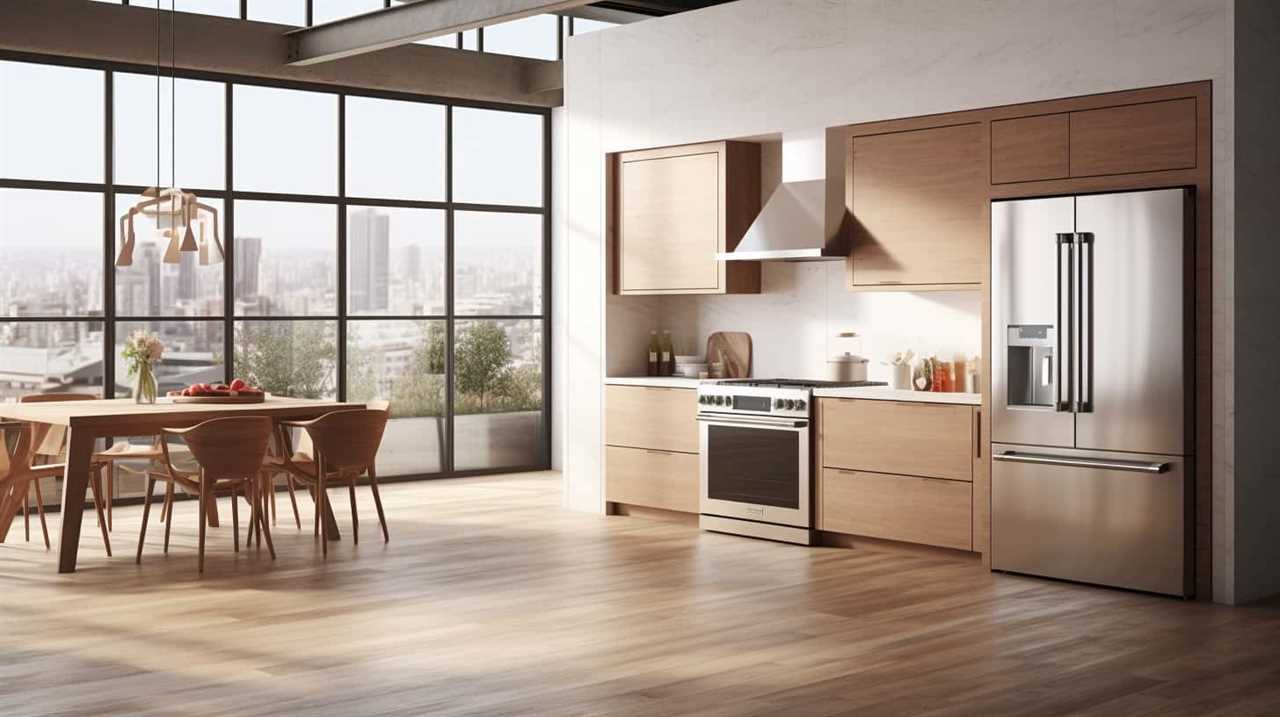
When attempting to use a 240v appliance with a 110v power source, there are significant voltage compatibility risks involved. The higher voltage can overload the appliance, leading to overheating, damage to internal components, and even the risk of fire.
To avoid these risks, voltage conversion alternatives can be used. These alternatives involve using a step-up transformer to increase the voltage from 110v to 240v, allowing the appliance to operate safely.
However, there are factors that determine appliance compatibility beyond voltage, which will be discussed in the subsequent section.
Factors That Determine Appliance Compatibility
What factors determine appliance compatibility?

When it comes to understanding voltage requirements and the impact of voltage on appliance performance, several factors play a crucial role in determining whether an appliance can be used with a different voltage. Here are three key factors to consider:
- Voltage Rating: Every appliance has a specified voltage rating, indicating the voltage it requires to operate correctly. If the voltage supplied is within the acceptable range mentioned on the appliance, it is compatible.
- Power Consumption: Appliances consume a certain amount of power, measured in watts. Different voltage levels affect the power consumption of an appliance. It is essential to ensure that the supplied voltage can meet the power requirements of the appliance.
- Internal Components: The internal components of an appliance, such as motors or heating elements, are designed to work optimally at specific voltages. Using a voltage outside the recommended range can impact the performance and lifespan of these components.
Understanding these factors is crucial in determining appliance compatibility before attempting to use them with a different voltage.
Now, let’s explore the possibility of converting voltage.
Converting Voltage: Is It Possible
Voltage conversion presents a potential solution for utilizing appliances with different voltage requirements. Understanding converters and exploring voltage conversion alternatives can help individuals make informed decisions when dealing with appliances that require different voltages.

Converters are devices that can transform the voltage of an electrical current to match the requirements of a specific appliance. They work by either increasing or decreasing the voltage level, depending on the needs of the appliance.
However, it is crucial to note that not all appliances can be converted to operate on a different voltage. Some appliances, such as those with motors or heating elements, may not function properly even with a converter. It is essential to consult the appliance’s manufacturer or an electrician to determine if voltage conversion is a viable option.
The Importance of Voltage Transformers
Voltage transformers play a crucial role in ensuring the compatibility of appliances with different voltage requirements.
Understanding the importance of voltage compatibility is essential to avoid potential damage to electrical devices.

Voltage Compatibility Explained
One important aspect of electrical compatibility is the use of voltage transformers to ensure the proper functioning of 240v appliances on a 110v electrical system. Understanding voltage regulations and the risks associated with voltage compatibility is crucial to prevent damage to appliances and ensure safety.
Here are three key points to consider when it comes to voltage compatibility:
- Voltage transformers: These devices are designed to convert the voltage from 110v to 240v, allowing 240v appliances to operate safely on a lower voltage system. It is important to choose a transformer that can handle the power requirements of the appliance.
- Power capacity: It is crucial to select a transformer with the appropriate power capacity to match the needs of the appliance. Insufficient power capacity can lead to overheating and potential damage to the appliance.
- Safety precautions: When using voltage transformers, it is important to follow safety guidelines provided by the manufacturer. This includes proper grounding, regular maintenance, and monitoring of the transformer’s temperature and performance.
Benefits of Voltage Transformers
Voltage transformers are essential for ensuring the safe and efficient operation of 240v appliances on a 110v electrical system, providing a reliable solution for the different voltage requirements. Understanding transformers and selecting the right voltage converter is crucial in maintaining the functionality of appliances and preventing damage caused by incorrect voltage levels.
Transformers work by converting the input voltage to the desired output voltage, allowing appliances to operate without any hiccups. By stepping down the voltage from 240v to 110v, voltage transformers ensure that appliances receive the appropriate amount of power they need to function optimally.
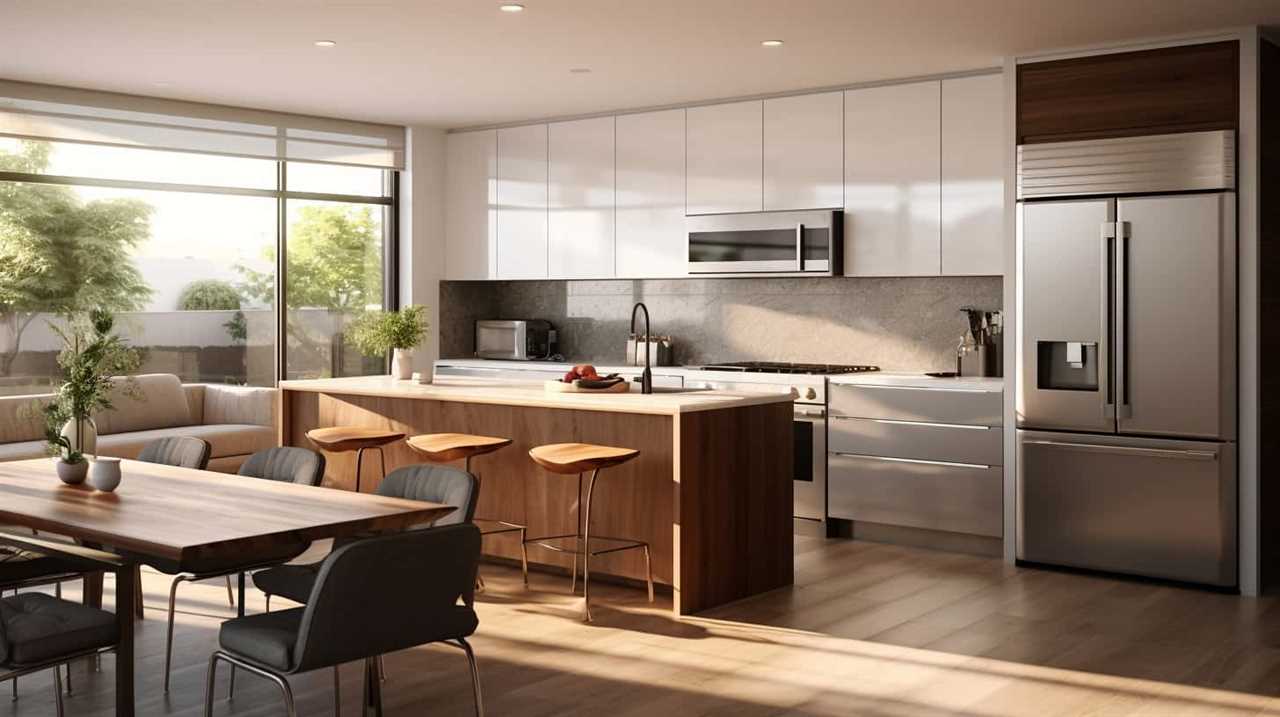
Here is a table that highlights the benefits of using voltage transformers:
| Benefits of Voltage Transformers |
|---|
| Ensures safe operation of appliances |
| Prevents damage from voltage fluctuations |
| Allows compatibility with different electrical systems |
Avoiding Electrical Damage Risks
To mitigate the risks of electrical damage, it is crucial to prioritize the utilization of voltage transformers when operating 240v appliances on a 110v electrical system. Voltage transformers are essential in ensuring the safety of both the appliance and the electrical system.
Here are three reasons why voltage transformers are vital for electrical damage prevention:
- Voltage Regulation: Voltage transformers convert the 110v electrical supply into the necessary 240v voltage required by the appliance. This ensures that the appliance receives the correct voltage and prevents electrical damage caused by over or under voltage.
- Surge Protection: Voltage transformers often include built-in surge protection mechanisms, safeguarding the appliance from sudden voltage spikes or surges. These surges can damage sensitive electronic components and result in costly repairs.
- Isolation: Voltage transformers provide electrical isolation between the appliance and the electrical system. This isolation prevents any potential electrical fluctuations or faults from affecting the appliance, reducing the risk of electrical damage.
Using Voltage Converters Safely
When using voltage converters to operate 240v appliances on a 110v supply, it is important to be aware of their limitations. Converters have a maximum wattage capacity, and exceeding this can lead to overheating and damage to both the converter and the appliance.

To ensure safety, it is crucial to follow recommended safety precautions when converting voltage, such as using converters with built-in thermal protection and surge protection. Additionally, choosing the right converter that matches the wattage requirements of the appliance is essential for proper and safe operation.
Voltage Converter Limitations
With proper usage and adherence to safety guidelines, voltage converters can effectively facilitate the operation of 240v appliances on a 110v power supply. However, it is important to understand the limitations of voltage converters to ensure their safe and efficient use. Here are three key considerations when using voltage converters:
- Voltage converter selection: Choose a converter that can handle the wattage of your appliance. It is crucial to check the converter’s maximum wattage capacity and ensure it matches or exceeds the power requirements of your device.
- Potential risks: Voltage converters can generate heat and may pose a fire hazard if not used properly. Avoid overloading the converter by ensuring that the total wattage of all connected appliances does not exceed its capacity. Additionally, always follow the manufacturer’s instructions and use the converter in a well-ventilated area to prevent overheating.
- Compatibility with sensitive electronics: Some 240v appliances, such as computers or televisions, may be sensitive to voltage fluctuations. In such cases, it is advisable to use voltage stabilizers or surge protectors along with the converter to safeguard these devices from potential damage.
Safety Precautions When Converting
The implementation of proper safety precautions is essential when converting voltage and using voltage converters to ensure the safe operation of 240v appliances on a 110v power supply. Understanding the risks involved in voltage conversion is crucial to avoid potential hazards and ensure the longevity of both the appliance and the converter.
One of the key safety precautions is proper wiring. It is important to ensure that the wiring connections between the voltage converter and the appliance are secure and in compliance with safety standards. Loose or faulty wiring can lead to overheating, short circuits, and electrical fires.
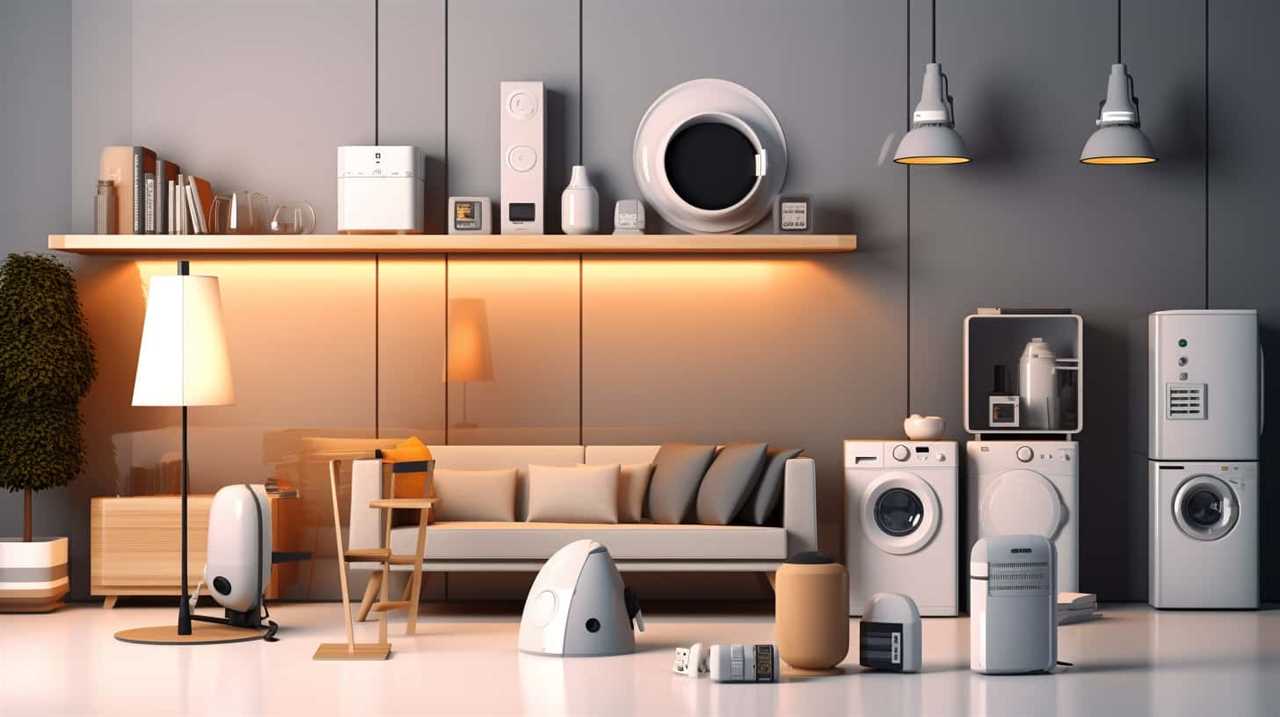
Additionally, it is advisable to use voltage converters that are specifically designed for the intended purpose and have the necessary safety certifications. Adhering to these safety precautions will help mitigate risks and ensure the safe operation of 240v appliances on a 110v power supply.
Choosing the Right Converter
To safely use voltage converters and ensure the proper operation of 240v appliances on a 110v power supply, it is crucial to select the appropriate converter for the task. Understanding the power consumption of your appliances and the types of voltage converters available will help you make an informed decision.
Here are three important factors to consider when choosing a converter:
- Power Rating: The converter should have a power rating that matches or exceeds the power consumption of your appliance. This ensures that the converter can handle the load without overheating or causing damage.
- Type of Converter: There are two main types of voltage converters – step-up converters and step-down converters. A step-up converter increases the voltage from 110v to 240v, while a step-down converter decreases the voltage from 240v to 110v. Choose the appropriate type based on the voltage requirements of your appliance.
- Safety Features: Look for converters that have built-in safety features such as overload protection, short circuit protection, and thermal protection. These features help prevent damage to the converter and your appliances in case of any electrical faults.
Alternatives to Voltage Conversion
One viable alternative for running 240v appliances on a 110v power supply is the use of a voltage transformer.

While voltage converters and adapters are commonly used for this purpose, they may not always be the most practical or cost-effective solution.
A voltage transformer allows the user to step up the voltage from 110v to 240v, enabling the appliance to operate at its required voltage.
These transformers are designed to handle high power loads and provide a stable and reliable power source.
They come in different sizes and capacities, allowing users to choose the appropriate transformer based on the power requirements of their appliances.
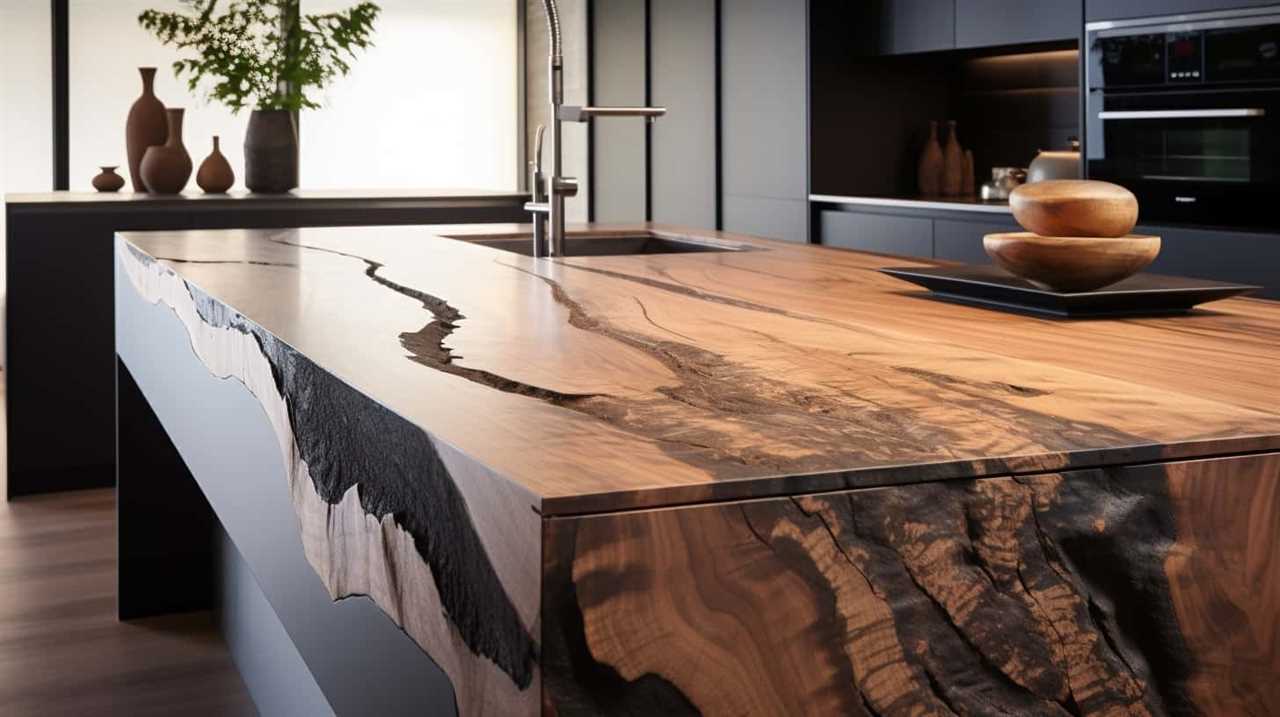
Voltage transformers are a reliable alternative solution for running 240v appliances on a 110v power supply.
Checking Appliance Specifications
When considering the possibility of running 240v appliances on a 110v power supply, it is important to thoroughly check the specifications of the appliances. Understanding the power requirements of your appliances is crucial to determine if they can operate on a lower voltage. Here are three key points to consider when checking appliance specifications:
- Voltage requirement: Verify if the appliance is rated for 110v operation. Some appliances have a dual voltage rating and can be switched to operate on either 240v or 110v.
- Power consumption: Check the wattage or amperage rating of the appliance. Lower voltage may result in higher current draw, potentially overloading the circuit and causing damage.
- Safety features: Determine if the appliance has built-in safeguards against voltage fluctuations. Without proper protection, running a 240v appliance on 110v can pose a fire or shock hazard.
Thoroughly examining the specifications will help you understand the power requirements and potential risks associated with running 240v appliances on a 110v power supply.
Common 240v Appliances and Their Compatibility
Continuing the discussion on the compatibility of running 240v appliances on a 110v power supply, it is important to examine the common 240v appliances and their compatibility with lower voltage.

Understanding wattage requirements is crucial when determining if a 240v appliance can run on 110v. Most appliances will have their wattage requirements listed on a label or in the user manual. By comparing the wattage requirements of the appliance with the available wattage from the lower voltage power supply, one can determine if the appliance is compatible.
Troubleshooting voltage issues may involve using a step-up transformer to convert the voltage from 110v to 240v. However, it is important to note that not all appliances can be easily converted and may require professional assistance.
In the next section, we will discuss tips for travelers with 240v appliances, including considerations for compatibility and voltage conversion.
Tips for Travelers With 240v Appliances
Travelers with 240v appliances can effectively utilize their devices by considering a few key tips. When traveling with voltage converters, it is important to choose the right converter option to ensure compatibility and safety. Here are three essential tips for travelers with 240v appliances:

- Research voltage converter options: Before embarking on your journey, thoroughly research different voltage converter options available in the market. Look for converters that can handle the wattage and voltage requirements of your specific appliances.
- Check the compatibility of your appliances: Ensure that your appliances are compatible with the voltage range of the destination country. Some appliances may have dual voltage options or come with built-in voltage converters, eliminating the need for an external converter.
- Pack the necessary adapters: Along with the voltage converter, don’t forget to pack the appropriate plug adapters for the destination country. Different countries have different plug types, and having the right adapter will enable you to connect your appliances to the local power outlets.
Conclusion: Making Informed Decisions
In conclusion, when considering the use of 240v appliances on a 110v electrical system, it is essential to prioritize safety by assessing the feasibility of voltage conversions.
Additionally, it is crucial to evaluate the compatibility and limitations of the appliances in question, as not all devices are designed to operate efficiently on lower voltages.
Seeking professional guidance can provide valuable insight and expertise to make informed decisions regarding the use of 240v appliances on a 110v electrical system.
Safety Considerations for Voltage Conversions
When considering voltage conversions, it is crucial to prioritize safety and make informed decisions. Understanding the risks involved and exploring voltage conversion alternatives can help ensure the safety of both the appliances and the individuals using them.

Here are three important safety considerations to keep in mind:
- Compatibility: Not all appliances are designed to be used with different voltage levels. Before attempting a voltage conversion, it is essential to verify whether the appliance can safely operate at the desired voltage. Using appliances with incompatible voltage levels can lead to damage, malfunctions, or even electrical hazards.
- Quality of Conversion Devices: If voltage conversion is necessary, it is important to invest in high-quality conversion devices. Poorly designed or faulty converters can cause damage to appliances, electrical circuits, or even pose a fire hazard.
- Professional Assistance: In many cases, seeking professional help is recommended when dealing with voltage conversions. Electricians or experts in the field can provide guidance, ensure the correct installation of conversion devices, and minimize the risks associated with voltage conversions.
Appliance Compatibility and Limitations
Appliance compatibility and limitations must be carefully assessed to make informed decisions regarding the use of 240v appliances on a 110v power supply. Understanding appliance requirements and voltage compatibility is crucial in determining whether a particular appliance can function properly on a lower voltage. To provide a clear visual representation of this concept, the following table explains the compatibility and limitations of appliances when used with different voltage supplies:
| Appliance | Voltage Compatibility | Limitations |
|---|---|---|
| Oven | 240v | Cannot function on 110v |
| Refrigerator | 240v | May experience reduced performance on 110v |
| Water heater | 240v | Cannot function on 110v |
| Air conditioner | 240v | Cannot function on 110v |
| Washing machine | 240v | May experience reduced performance on 110v |
Benefits of Professional Guidance
With the assistance of professional guidance, individuals can make informed decisions regarding the compatibility and safe usage of 240v appliances on a 110v power supply. Seeking professional expertise ensures that potential risks associated with using incompatible voltage are minimized.
Here are the benefits of professional guidance in this context:

- Accurate assessment: Professionals possess the knowledge and expertise to accurately assess the compatibility of 240v appliances with a 110v power supply. They can evaluate the electrical requirements and potential modifications needed for safe operation.
- Safety assurance: Professional guidance ensures that safety standards are met and potential hazards are addressed. They can provide advice on the proper use of voltage converters, transformers, or other necessary equipment to ensure the safe operation of the appliances.
- Cost-effectiveness: Engaging professional guidance can help individuals avoid costly mistakes. By receiving expert advice, individuals can determine if their desired appliance can be safely used with a voltage converter or if an alternative appliance should be considered, preventing unnecessary expenses and potential damage.
Frequently Asked Questions
Can I Use a Voltage Converter to Run Multiple 240v Appliances Simultaneously?
A voltage converter can be used to run multiple 240v appliances simultaneously, but it is important to consider the limitations of the converter and calculate the power consumption of the appliances to ensure they do not exceed the converter’s capacity.
Are There Any Potential Risks or Dangers Associated With Using Voltage Converters?
When using voltage converters, it is crucial to consider the compatibility and specifications of appliances. Failure to do so can pose risks and dangers, especially for travelers abroad. It is essential to consult with professionals to ensure safe operation.
What Are the Alternatives to Using Voltage Conversion for My 240v Appliances?
Using step up transformers is a viable alternative for running 240v appliances on a 110v power source. Additionally, alternative power sources such as solar panels or generators can be used to provide the necessary voltage for these appliances.
How Can I Check the Specifications of My Appliances to Determine if They Are Compatible With 110v?
To check the compatibility of your appliances with 110v, it is essential to determine their voltage requirements. By consulting the appliance’s specifications or consulting a professional, you can ensure the correct voltage usage.

Are There Any Specific Tips or Considerations for Travelers Who Want to Use Their 240v Appliances Abroad?
When traveling abroad, it is important to consider the compatibility of your 240v appliances with the local voltage of 110v. To use these appliances, a travel adapter and voltage converter may be necessary, while keeping in mind their limitations.
Conclusion
In conclusion, it is not possible for 240v appliances to run on 110v without the use of voltage transformers or converters. The compatibility of appliances with different voltage systems depends on various factors, including power requirements and safety regulations.
It is essential to carefully check appliance specifications and use voltage converters safely to avoid any damage or accidents. Interestingly, according to a study conducted by the U.S. Consumer Product Safety Commission, electrical fires caused by voltage mismatches in appliances account for approximately 6% of all residential fires in the United States.
